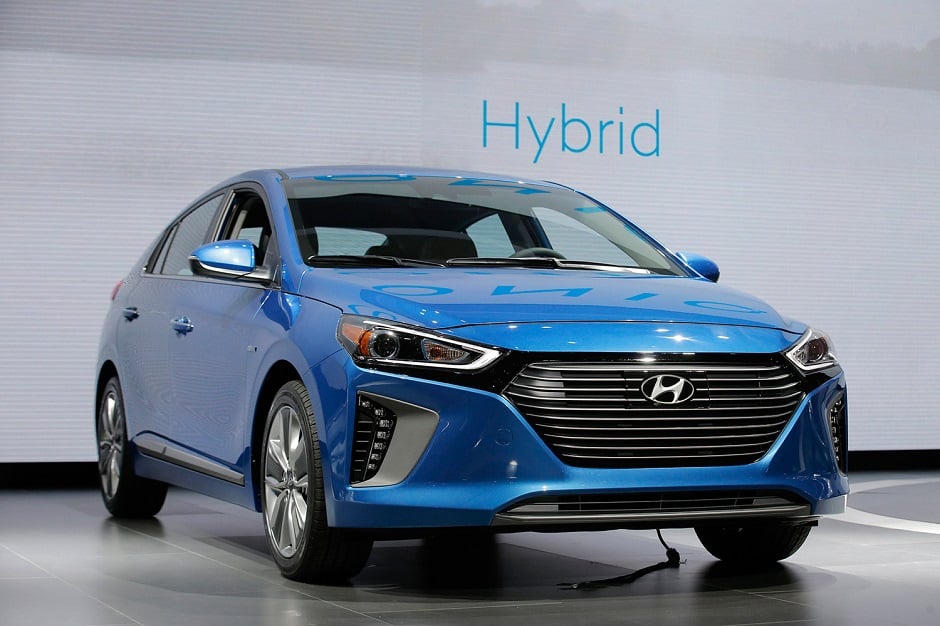
While the platform will not be completed soon, Hyundai Motor and affiliate Kia Motors Corp plan to roll out small electric sport utility vehicles (SUVs) based on an existing underpinning next year, said Lee Ki-sang, who leads Hyundai-Kia's green cars operations.
The separate platform represents a major push into the battery electric-car segment for a firm which has long trumpeted rival fuel-cell vehicles, reflecting strong investor pressure to compete more vigorously in a market that has been stimulated by U.S.-based Tesla Inc's longer-range models.
Industry executives also say tough fuel-economy and emissions regulations in the United States, Europe and China are compelling automakers to push fuel-efficient cars even though low oil prices have undercut demand.
Volkswagen to unveil self-driving car as part of post-dieselgate shift
Hyundai's electric-car platform would allow the automaker to install a battery pack in vehicle floors to accommodate more battery capacity and maximize cabin space, Lee said.
"The electric-vehicle platform will require high up-front investments but we are doing this to prepare for the future," he said at Hyundai-Kia's green car research center in the city of Yongin, outside Seoul. He did not reveal the cost.
Lee, a senior vice-president at Hyundai Motor, was speaking during an interview on the eve of an auto show that kicked off in Seoul on Thursday.
Analysts said Hyundai had no choice but to join the likes of Tesla, General Motors Co and Daimler AG unit Mercedes-Benz in building separate electric-vehicle platforms to be relevant in the segment.
"The separate platform may incur losses initially, but Hyundai will be left behind the market if they don't offer long-distance models, like 300 km, 500 km and 600 km," Ko Tae-bong, an analyst at Hi Investment & Securities.
Cautious outlook
Hyundai will launch an electric SUV, followed by a sibling model by Kia Motors next year, Lee said, citing strong demand for SUVs.
The subcompact or compact models would have a range of more than 300 km (186 miles) per charge, and would be "more competitive" than rival offerings, Lee said.
Hyundai Motor's IONIQ hybrid sedan fell short of its sales target, while Kia's Niro hybrid SUV exceeded its forecast last year.
Kia Motors was also working on its first fuel cell vehicle, following Hyundai Motor's lead in the segment, Lee said.
NAVYA Self-driving shuttle goes to work in Las Vegas
Despite Hyundai's beefed-up plans for the electric car market, Lee was cautious about the outlook given the planned phase-out of government subsidies in China and other markets.
Limited charging infrastructure and problems with battery technology, such as lengthy charge times on long-range vehicles, were also holding back demand, he said.
Lee expected electric vehicles to account for about 10 percent of total global vehicle sales by 2025, from some 1 percent now, with China leading the way. Fuel-cell cars, by comparison, were unlikely to take off until 2025 but had long-term potential.
In China, Hyundai Motor was considering souring batteries from Contemporary Amperex Technology Ltd (CATL) or a couple of other Chinese firms, because of subsidy restrictions on South Korean batteries, he said.
As part of efforts to meet Chinese electric car quotas, Hyundai and Kia planned to introduce electric versions of its China-exclusive sedans and SUVs, while readying electrified models under local brands made with Chinese joint venture partners, he said.





1726644416-0/TikTok-(2)1726644416-0-270x192.webp)




1732618327-2/Untitled-design-(7)1732618327-2-270x192.webp)






COMMENTS (1)
Comments are moderated and generally will be posted if they are on-topic and not abusive.
For more information, please see our Comments FAQ